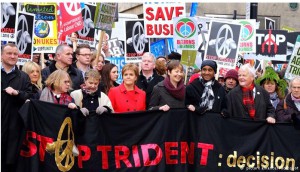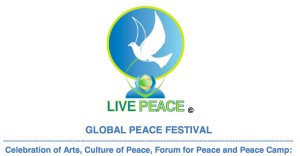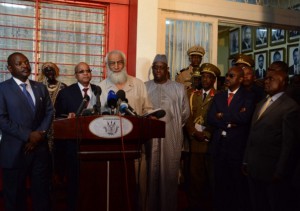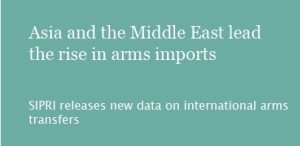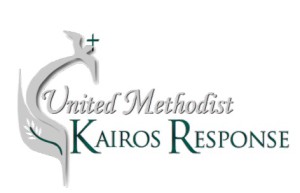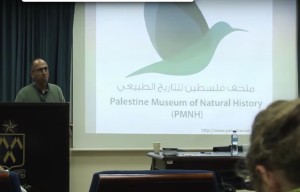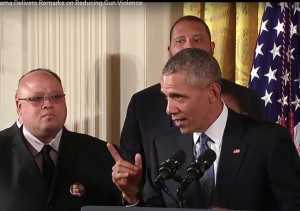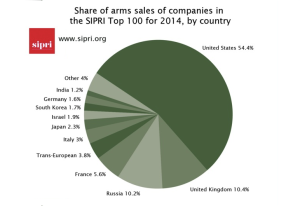DISARMAMENT & SECURITY .
An article from RT.com
The Marshall Islands launch a legal campaign against the UK, India and Pakistan this week [March 6] in a David versus Goliath battle to achieve the goal of a “nuclear free universe”. The islands accuse the nuclear states of failing to halt the nuclear arms race, and are urging the UN’s highest court, the International Court of Justice (ICJ), to pursue a lawsuit against all three.
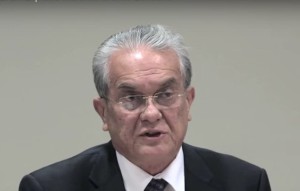
Video: Tony de Brum Explains Marshall Islands Lawsuits
The Pacific Ocean territory, used as a US nuclear testing site for 12 years, filed applications with the ICJ in April 2014 accusing the world’s nine nuclear-armed states of not respecting their nuclear disarmament obligations under the 1968 Nuclear Non-Proliferation Treaty (NPT) and customary international law.
The nine nations possessing nuclear arsenals are the US, the UK, France, Russia, China, India, Pakistan, North Korea, and Israel – though Israel is the only one which never acknowledged holding nuclear weapons.
The court admitted the cases brought against the UK, India and Pakistan because the three states have already recognised the ICJ’s authority.
The islands’ former Minister of Foreign Affairs Tony de Brum said they commenced “this lawsuit with the greatest respect and the greatest admiration for the big countries of the world, but we think it must be done”.
Hearings will take place in The Hague Monday to examine whether the International Court of Justice (ICJ) is competent to hear the lawsuits against India and Pakistan. Another hearing will take place on Wednesday to examine “preliminary objections” raised by London in the case against Britain, according to AFP.
(Article continued in right column)
Can we abolish all nuclear weapons?
(Article continued from left column)
De Brum has said the people of the Marshalls suffer quietly but they take this suit in “the cause of a nuclear free universe”.
“We are fighting for what we believe is the only solution in terms of peace and prosperity in the world.”
Olivier Ribbelink, senior researcher at the TMC Asser Institute in The Hague says “the case is in a very preliminary stage at this point”, but added: “Either way the outcome, the case has certainly sharply refocused attention on the dangers of nuclear proliferation.”
De Brum and the Marshall Islands legal team have been nominated for the 2016 Nobel Peace Prize.
De Brum was nine years old when the Castle Bravo hydrogen bomb was dropped by the US on Bikini Atoll on March 1, 1954 during the Cold War nuclear arms race.
The 15-megatonne bomb was the largest US nuclear test on record at 1000-times more powerful than the bomb dropped on Hiroshima.
The resulting characteristic mushroom cloud reached a diameter of 7km (4.5 miles) and a height of almost 40,000 meters (130,000ft) within six minutes of detonation.
The US carried out 67 nuclear tests in the Marshall Islands between 1946 and 1958.
Bikini Islanders lived in exile since they were moved for the first US weapons test, though some returned in the early 1970s after government scientists declared Bikini safe for resettlement.
However, residents were removed again in 1978 after ingesting high levels of radiation from eating local foods grown on the former nuclear testing site.
The Marshall Islands is appealing to the US Supreme Court after its case against the country was dismissed by a US federal court last year.
